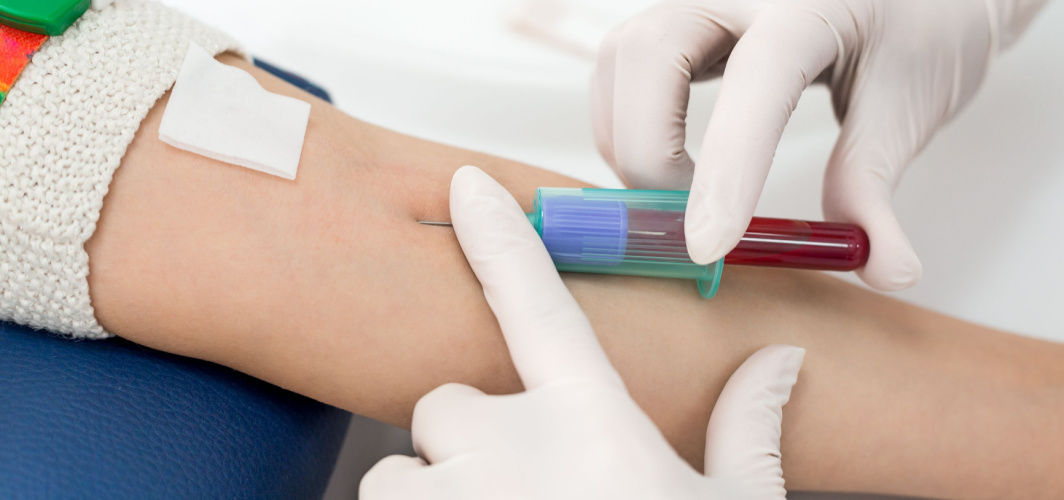Diabetes Management
Can Not Eating Enough Cause Diabetes?
2 min read
By Apollo 24|7, Published on - 09 July 2024
Share this article
0
0 like
.jpg?tr=q-80)
The correlation between diet and diabetes is often misunderstood. We seek to address one common question: can not eating enough lead to diabetes? While maintaining a balanced diet is crucial for overall health, the association of insufficient food intake with diabetes is not straightforward. However, starvation or very-low-calorie diets might indeed heighten the risk of developing type 2 diabetes. Let us explore the relationship between food and diabetes in detail.
Understanding Hypoglycaemia and Diabetes
Hypoglycaemia, or low blood sugar, is a condition that can arise if individuals don't eat enough, skip meals, or have specific medical conditions. However, it's vital to recognise that hypoglycaemia is different from diabetes. In contrast to hypoglycaemia, diabetes is characterised by high blood sugar levels due to the body’s inability to regulate blood sugar levels effectively.
Unravelling the Root Causes of Diabetes
Type 1 diabetes arises when the pancreas fails to produce sufficient insulin. On the other hand, type 2 diabetes develops when the body becomes resistant to insulin. But it's important to note that these conditions are not directly caused by not eating enough.
The Role of Carbohydrates in Diabetes
A consistent deficiency in carbohydrate consumption can lead to chronically low blood sugar levels. Over time, this might increase the risk of developing type 2 diabetes as the body could become more insulin resistant as a compensatory mechanism.
Dietary Factors and Diabetes Risk
The key dietary factors increasing the risk of type 2 diabetes are excessive consumption of refined carbohydrates (like processed wheat and rice products) and too much red or processed meat, while not eating enough whole grains.
In essence, while not eating enough does not directly cause diabetes, it can contribute to blood sugar imbalances that may increase diabetes risk over time.
This is precisely why maintaining a balanced diet and understanding the types of carbohydrates and proteins consumed is essential. The Apollo Super 6 program can provide valuable guidance and support in managing diet effectively for individuals prone to diabetes.
Diabetes Management
Consult Top Diabetologists
View AllLeave Comment
Recommended for you
.jpg?tr=q-80)
Diabetes Management
Log. Track. Learn- Here’s How You Can Simplify Your Diabetes Management
Simplify your diabetes management with Apollo 24|7's diabetes self-management tool. Track your glucose levels, monitor physical activity, sync glucometers, understand the impact of your meals on your sugar levels and stay informed through Health Bites. You can try this user-friendly tool that empowers you to make informed decisions, achieve better blood sugar control, and lead a healthier life while simplifying your diabetes management journey.

Diabetes Management
Getting A Blood Sugar Test Done? Know How To Read The Report!
Diabetes, affecting 537 million adults globally, poses severe health risks if untreated. Regular blood sugar tests are vital for managing the disease and preventing complications. Tests include random, fasting, postprandial, and glucose tolerance tests. Normal blood glucose levels range from 80 to 110 mg/dL, while levels exceeding 200 mg/dL may indicate diabetes. Reading reports involves understanding fasting and postprandial levels, crucial for diagnosis and effective management.

Diabetes Management
Why urinary tract infection occurs commonly in diabetics?
Researchers have found that women and older adults with uncontrolled diabetes are at a higher risk of developing urinary tract infections (UTIs). Factors contributing to frequent UTIs in diabetics include higher glucose concentration in urine, high glucose levels in the renal parenchyma, impaired immunity, and nerve damage in the urinary tract leading to reduced bacterial clearance. Studies suggest that bladder dysfunction due to diabetic neuropathy affects a significant percentage of diabetic women.
Subscribe
Sign up for our free Health Library Daily Newsletter
Get doctor-approved health tips, news, and more.
Visual Stories

8 Fruits That are Incredibly Healthy for Diabetes
Tap to continue exploring
Recommended for you
.jpg?tr=q-80)
Diabetes Management
Log. Track. Learn- Here’s How You Can Simplify Your Diabetes Management
Simplify your diabetes management with Apollo 24|7's diabetes self-management tool. Track your glucose levels, monitor physical activity, sync glucometers, understand the impact of your meals on your sugar levels and stay informed through Health Bites. You can try this user-friendly tool that empowers you to make informed decisions, achieve better blood sugar control, and lead a healthier life while simplifying your diabetes management journey.

Diabetes Management
Getting A Blood Sugar Test Done? Know How To Read The Report!
Diabetes, affecting 537 million adults globally, poses severe health risks if untreated. Regular blood sugar tests are vital for managing the disease and preventing complications. Tests include random, fasting, postprandial, and glucose tolerance tests. Normal blood glucose levels range from 80 to 110 mg/dL, while levels exceeding 200 mg/dL may indicate diabetes. Reading reports involves understanding fasting and postprandial levels, crucial for diagnosis and effective management.

Diabetes Management
Why urinary tract infection occurs commonly in diabetics?
Researchers have found that women and older adults with uncontrolled diabetes are at a higher risk of developing urinary tract infections (UTIs). Factors contributing to frequent UTIs in diabetics include higher glucose concentration in urine, high glucose levels in the renal parenchyma, impaired immunity, and nerve damage in the urinary tract leading to reduced bacterial clearance. Studies suggest that bladder dysfunction due to diabetic neuropathy affects a significant percentage of diabetic women.

